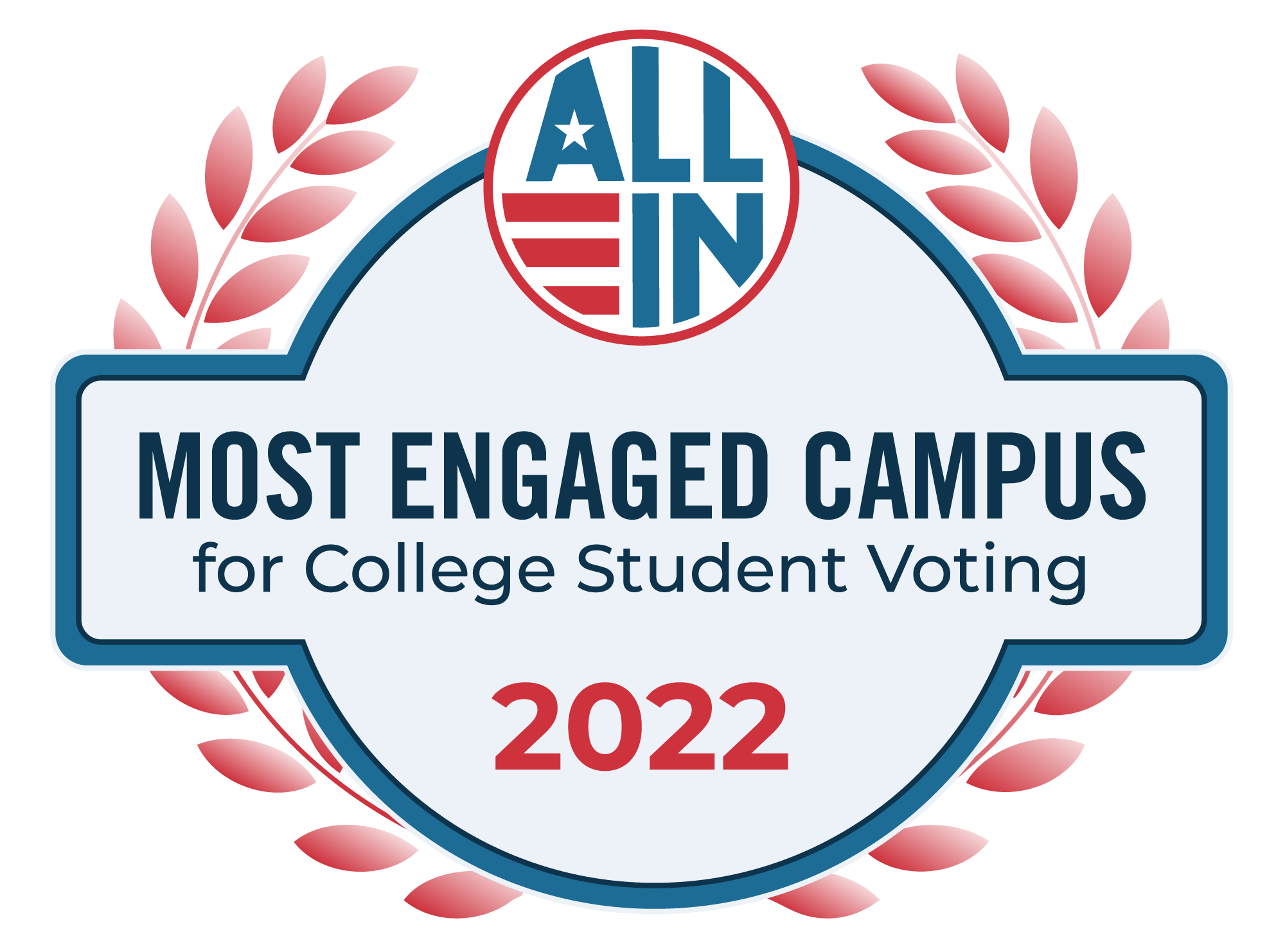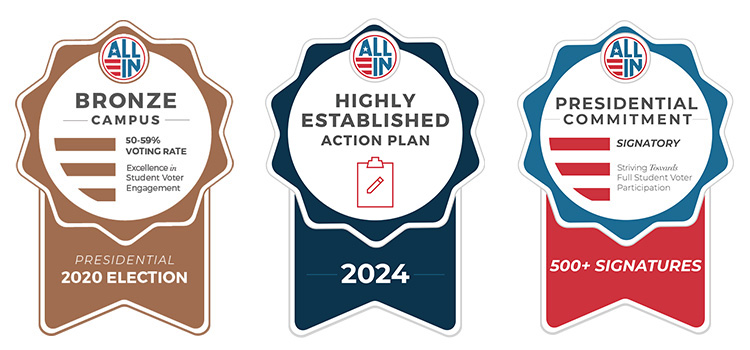ROAR the Vote
ROAR the Vote supports students' involvement in electoral politics by helping to ensure that students understand the voting process — including voter registration and absentee ballots, as well as the importance of voting in local, state, and national elections.
The ROAR the Vote initiative is led by the Center for Leadership and Civic Engagement and the Office of Government and Community Relations.
At RIT, we recognize that our students are not only the future of our democracy but also vital contributors to its present. Our campus-wide efforts help students harness their significant influence - especially on the local level. In doing so we can help students see their power in action, in their communities, and around the change they care about most.
Resilience Through the Election Cycle
The election cycle can bring up a variety of emotional reactions – e.g. fear, sadness, anger, disappointment, grief, powerlessness. If you are experiencing heightened emotions throughout this election season, know that you are not alone. We encourage you to proactively take steps to maintain resilience during this time.
Helpful tips to promote resilience throughout this election cycle:
- Notice feelings: Acknowledge thoughts and feelings. Notice with nonjudgmental curiosity and give yourself permission to feel the way you do.
- Unplug: Set time limits on exposure to media content related to the election. Be mindful of the time of day you are taking in information. For example, browsing just before bed is not recommended.
- Stay in the here and now: Focus on the present. Avoid engaging with prediction of the future and/or catastrophizing. Notice feelings with nonjudgmental curiosity.
- Connect: Connect with friends, family, and community. Talk about your feelings if needed. Practice communicating your boundaries when needed as well. It is OK to end a conversation when needed.
- Engage in self-care: Prioritize time for yourself. Spend time outside, practice mindful breathing, go for a walk, engage creativity, read for fun, or play a board game or cards.
- Recharge: Maintain basic needs including eating regular healthy meals, regularly activity/movement, and getting enough sleep. 7-9 hours of sleep daily is recommended.
- Do something: Channel feelings into positive and meaningful activity. Vote. Find ways to engage with your community through volunteering and advocacy.
- Reach out for help when needed: Connect with a resource that can provide a safe space to process feelings if you are struggling to maintain resilience. Counseling and Psychological Services and Spirituality and Religious Life can be useful confidential resources to help you process your thoughts and feelings.

RIT is proud to be recognized as one of ALL IN Campus Democracy Challenge’s Most Engaged Campuses for College Student Voting. In addition to developing a 2024 democratic engagement action plan, RIT also participated in the ALL IN Campus Democracy Challenge, shared 2020 campus voting data with ALL IN, and is a signatory on ALL IN’s Higher Education Presidents’ Commitment to Full Student Voter Participation.

7%
increase in voting rates among RIT students from 2012 (32%) to 2016 (39%)
A 10% increase (45% to 55%) in the voting rate among registered students during that same time period.
18%
increase in voting rates among RIT students from 2014 (8%) to 2018 (26%)
A 23% increase (15% to 38%) in the voting rate among registered students during that same time period.
34%
A 34% increase in the number of students registered to vote between 2014 (n=7555) and 2018 (n=10,076).
Congress to Campus
Congress to Campus provides RIT students with a unique civic education by engaging our community in honest dialogue with bipartisan teams of Former Members of Congress, Congressional staff, and American diplomats. These dialogues bring today’s issues to the forefront and display the benefits of healthy partisanship and civility within disagreement.
Horizons
Horizons is rooted in the National Issues Forums model for deliberative dialogues, the goal of the program is to promote active listening and dialogue rather than debate on difficult topics. In a space where students, faculty, and staff can approach what may seem like a difficult conversation in a respectful, educational, and constructive manner, attendees will come away with a greater understanding of others who hold diverse views and be able to form an educated opinion on challenging and complex issues our society faces today. Example topics could include national debt, immigration, universal healthcare, etc.



